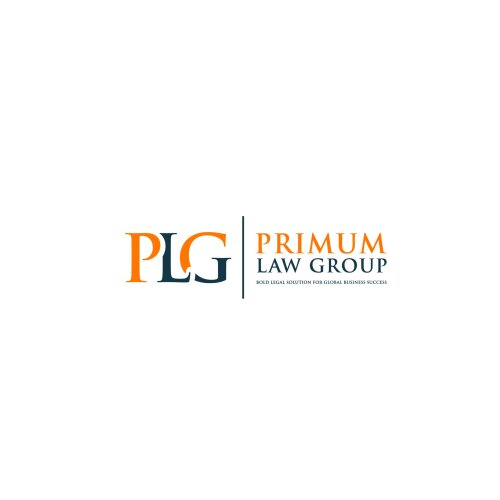Best Licensing Lawyers in San Francisco
Share your needs with us, get contacted by law firms.
Free. Takes 2 min.
List of the best lawyers in San Francisco, United States
United States Licensing Legal Questions answered by Lawyers
Browse our 1 legal question about Licensing in United States and read the lawyer answers, or ask your own questions for free.
- How do I legally protect my idea before selling or licensing it to a company?
- I have a makeup product idea that I want to sell or license, not the product itself. It is influenced by a product that was recently launched. Therefore, I want to sell/license to the company that launched said product. After some research, I contacted a patent attorney who explained that... Read more →
-
Lawyer answer by P.O OHIKHENA & Co
Good day,A patent will not be applicable since it's still an idea. You can go into an MOU(Memorandum of understanding) with the said company and also an NDA.You can contact me for my insight. Visit our profile and send us...
Read full answer
About Licensing Law in San Francisco, United States:
Licensing law in San Francisco, United States refers to the regulations and procedures surrounding the granting of licenses for various activities conducted within the city. Licensing is a legal requirement for many businesses, professions, and individuals to ensure they meet the necessary standards and comply with local laws. Obtaining the appropriate licenses is crucial for operating legally and avoiding penalties or closures.
Why You May Need a Lawyer:
There are several situations in which you may require the assistance of a lawyer for licensing matters in San Francisco. Some common situations include:
- Facing challenges during the license application process
- Dealing with license renewal issues
- Responding to license violations or compliance matters
- Resolving disputes or legal conflicts related to licensing
- Navigating complex regulations and understanding your rights
Local Laws Overview:
When it comes to licensing in San Francisco, there are a few key aspects of local laws to keep in mind:
- Licensing requirements vary depending on the type of activity or business, such as food establishments, professional services, construction, or liquor establishments. It is important to understand the specific regulations that apply to your situation.
- License applications often require documentation, including business permits, zoning approval, health and safety certifications, and background checks.
- Licensing fees and renewal timelines vary, and failure to comply with renewal deadlines may result in penalties or even license revocation.
- San Francisco also has specific zoning and land use regulations that may affect certain license applications.
Frequently Asked Questions:
1. What licenses do I need to operate a restaurant in San Francisco?
Operating a restaurant in San Francisco typically requires business permits, health permits, liquor licenses (if serving alcohol), and in some cases, entertainment permits. It is crucial to review the local regulations and obtain the necessary licenses.
2. How can I verify if a professional service provider is licensed?
You can verify the licensing status of professional service providers in San Francisco by checking with the relevant licensing boards or agencies. These boards oversee various professions and can provide information about licensed individuals or businesses.
3. What are the consequences of operating without the required licenses?
Operating without the required licenses in San Francisco can result in severe penalties, including fines, closure of business operations, and legal action. It is essential to comply with licensing requirements to avoid these consequences.
4. Can I appeal a denied license application?
Yes, if your license application is denied, you have the right to appeal the decision. The process for appealing may vary depending on the type of license and the specific circumstances. Consulting with a lawyer experienced in licensing matters can help you navigate the appeals process.
5. How often do licenses need to be renewed?
The renewal frequency for licenses in San Francisco varies depending on the type of license. Some licenses, such as annual liquor licenses, require renewal on a yearly basis, while others may be valid for longer periods. It is crucial to keep track of your license renewal deadlines to avoid any lapses in compliance.
Additional Resources:
For further information and assistance regarding licensing in San Francisco, consider exploring the following resources:
- Office of the Treasurer & Tax Collector: The official website for the city department responsible for licensing and collecting taxes - www.sftreasurer.org
- San Francisco Business Portal: Provides comprehensive information and resources for starting and operating a business in San Francisco - businessportal.sfgov.org
- San Francisco Department of Public Health: Offers guidance and information about health permits required for various establishments - www.sfdph.org
Next Steps:
If you require legal assistance or have further questions regarding licensing in San Francisco, consider taking the following steps:
- Research: Conduct additional research to understand the specific licensing requirements and processes for your situation.
- Consultation: Schedule a consultation with an experienced licensing lawyer who can provide personalized advice.
- Gather Information: Collect all relevant documents and information related to your licensing matter before meeting with a lawyer.
- Evaluate Options: Discuss your situation with the lawyer and explore potential strategies or solutions for your licensing needs.
- Take Action: Based on the advice provided by the lawyer, take the necessary steps to resolve any licensing issues, whether it involves applying for a license, contesting a denial, or addressing compliance concerns.
Lawzana helps you find the best lawyers and law firms in San Francisco through a curated and pre-screened list of qualified legal professionals. Our platform offers rankings and detailed profiles of attorneys and law firms, allowing you to compare based on practice areas, including Licensing, experience, and client feedback.
Each profile includes a description of the firm's areas of practice, client reviews, team members and partners, year of establishment, spoken languages, office locations, contact information, social media presence, and any published articles or resources. Most firms on our platform speak English and are experienced in both local and international legal matters.
Get a quote from top-rated law firms in San Francisco, United States — quickly, securely, and without unnecessary hassle.
Disclaimer:
The information provided on this page is for general informational purposes only and does not constitute legal advice. While we strive to ensure the accuracy and relevance of the content, legal information may change over time, and interpretations of the law can vary. You should always consult with a qualified legal professional for advice specific to your situation.
We disclaim all liability for actions taken or not taken based on the content of this page. If you believe any information is incorrect or outdated, please contact us, and we will review and update it where appropriate.













